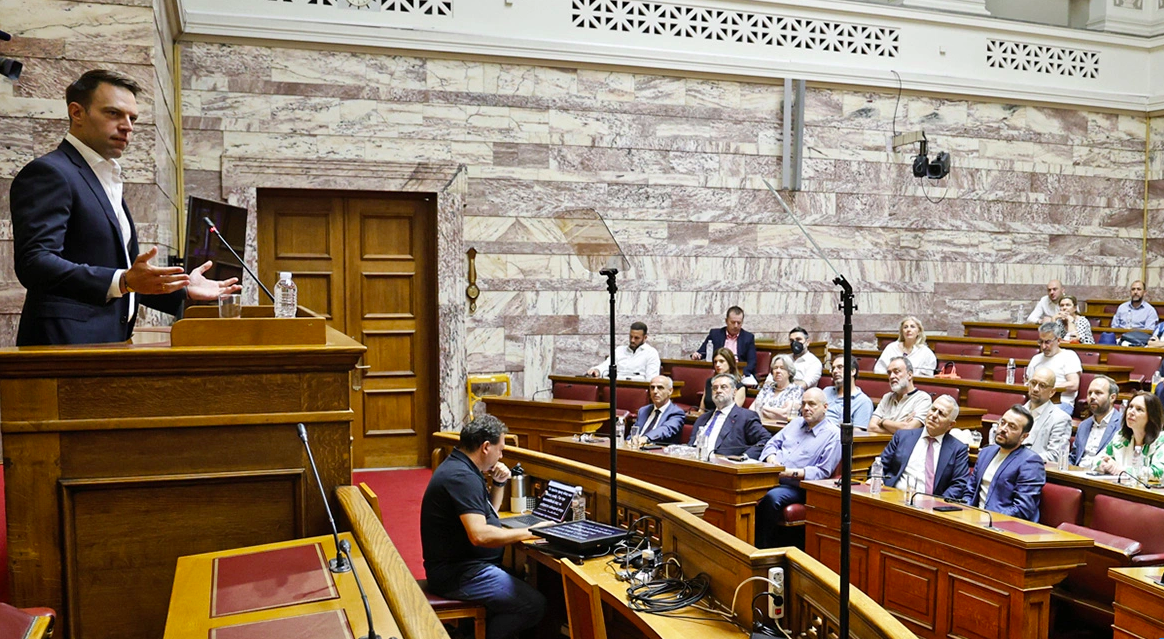A recent resignation and the next five successors are shaping the internal dynamics within SYRIZA-Progressive Alliance, following the decision of Harvard Professor and head of the party’s Statewide ballot, Othon Iliopoulos, to forgo his parliamentary seat.
Although Iliopoulos’ resignation was not entirely unexpected, having been a topic of speculation for the past six months, it has triggered a series of political reactions that may ultimately lead to the entrance of SYRIZA’s President, Stefanos Kasselakis, into Parliament.
Despite the Greek Parliament being in recess, Iliopoulos chose to formalize his decision by submitting a letter to the Speaker of the House, citing his academic responsibilities in the United States as the reason for his resignation. In his letter, he urged his colleagues on the Statewide ballot to step aside, allowing Kasselakis to assume the seat.
Iliopoulos expressed his hope that his resignation would not deprive expatriate Greeks of their representation, as his departure would enable another expatriate, Stefanos Kasselakis, to take his place. However, this appeal is directly aimed at the successors who must make room for Kasselakis.
Meanwhile, several members of SYRIZA’s Parliamentary Group and party officials have publicly advocated for the successors to yield the seat to Kasselakis. They argue that since Iliopoulos represented the Greek diaspora, it is fitting that Kasselakis, also from the diaspora, should succeed him, especially given that members of the Statewide ballot are not elected by personal vote.
However, some within the party view the intense pressure from Kasselakis’ supporters on the successors as a potential safeguard against political isolation for the SYRIZA President, particularly if internal tensions escalate as hinted at by Chania MP Pavlos Polakis.
The situation remains uncertain, with Popi Tsapanidou, the first successor, yet to declare her intentions, while Zorzeta Lali has made it clear she intends to claim the seat if it falls to her. This internal contest could further deepen divisions within the party, especially as Kasselakis’ move is seen by some as part of an ongoing struggle between the current leader and his predecessor, Alexis Tsipras.
Ask me anything
Explore related questions





